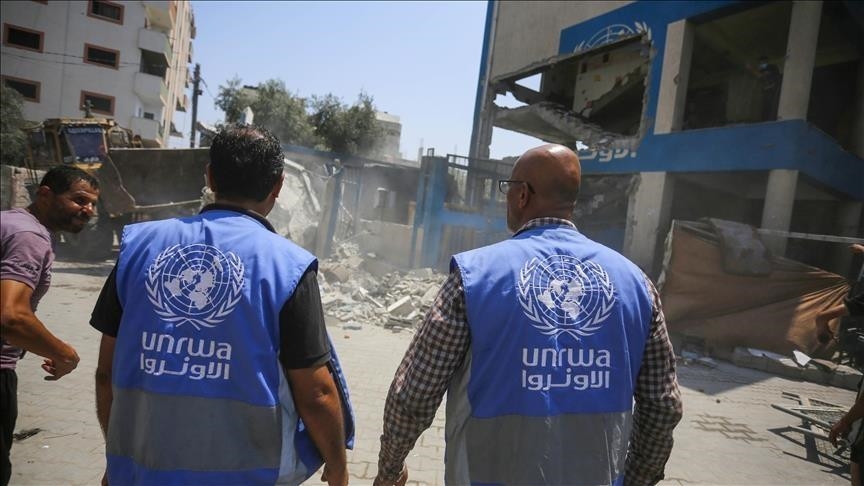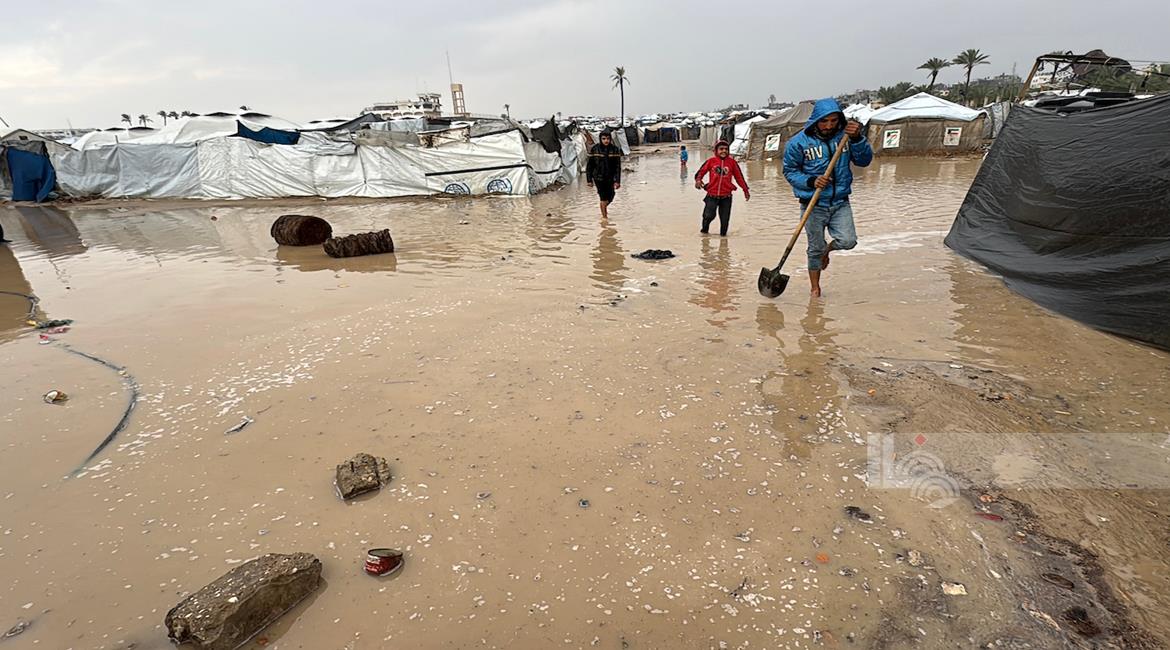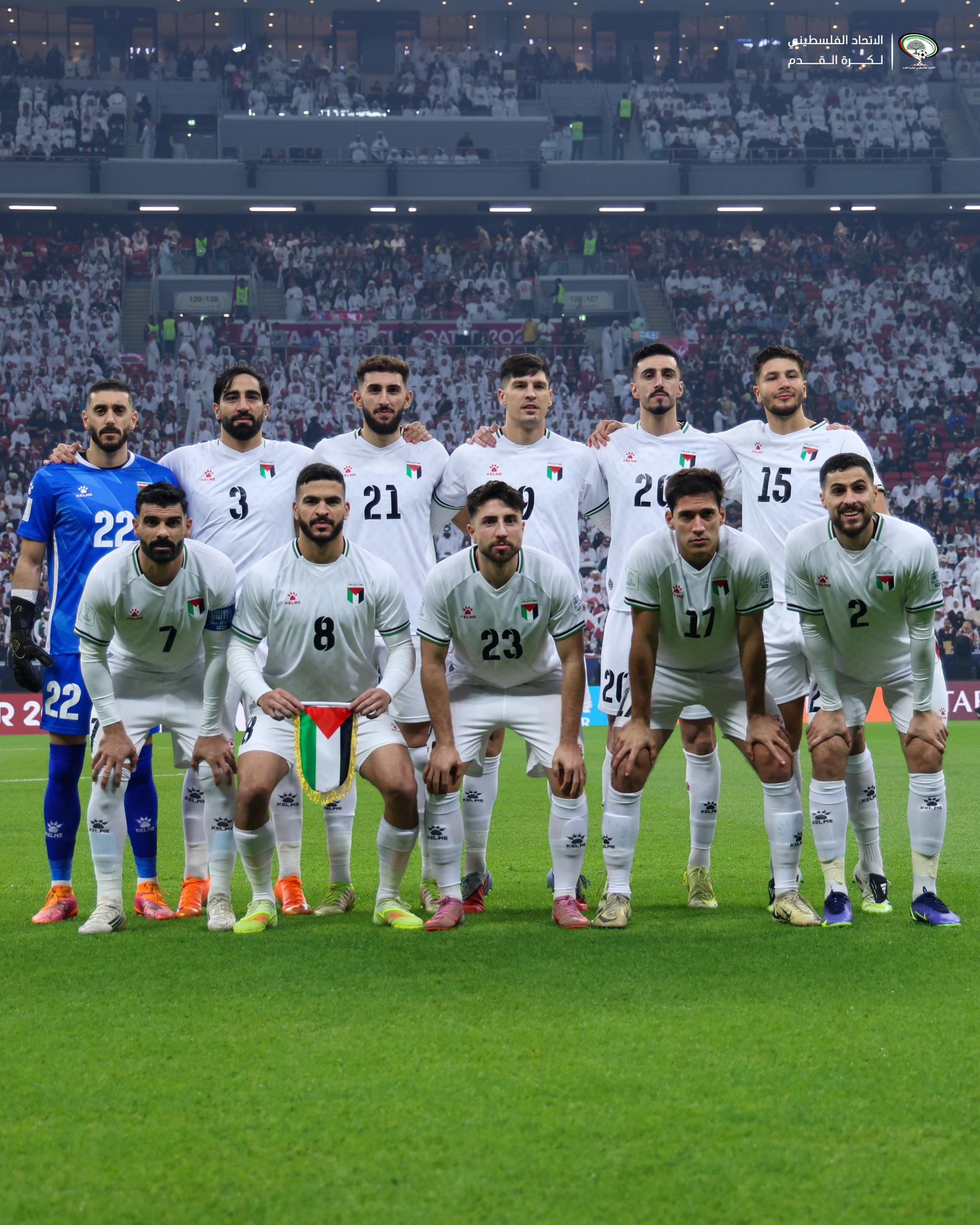By Maham al-Sheikh
JERUSALEM, November 9, 2024 (WAFA) – In the northern outskirts of Jerusalem, close to the Qalandiya refugee camp, stands the Qalandiya Training College, one of the first institutions created by the United Nations Relief and Works Agency for Palestine Refugees in the Near East (UNRWA) in the occupied Palestinian territories in 1953.
Today, it offers vocational training to over 270 students across 14 specializations, providing services like dormitories, medical care, and career guidance. Every year, some 250 to 300 students graduate from the college, ready to enter the workforce with skills that could help them rebuild their lives amidst ongoing occupation.
But now, the future of Qalandiya Training College, along with other vital UNRWA services in Jerusalem, is under threat. A recent law passed by the Israeli Knesset seeks to ban the agency’s operations within areas deemed under “Israeli sovereignty,” specifically in Jerusalem and other parts of the West Bank.
The new legislation prohibits UNRWA from operating any offices, providing any services, or conducting any activities in the territory it occupies, effectively aiming to force the agency out of the region it has served for decades.
This law, which is set to come into effect in 90 days, has grave implications not just for the 110,000 Palestinian refugees in Jerusalem, but also for the very concept of Palestinian identity and rights in the city. Israeli authorities have been trying to consolidate control over the city by erasing any traces of Palestinian presence, culture, and institutions.
Targeting the heart of Palestinian refugee services
UNRWA’s services in Jerusalem, which include health care, education, and social support, are a lifeline for tens of thousands of Palestinian refugees living in the city. The agency operates two refugee camps in Jerusalem: Shuafat Camp, home to over 16,500 refugees, and Qalandiya Camp, with around 16,400 residents.
Additionally, nearly 1,800 students attend UNRWA schools in the city, while thousands more rely on the agency’s medical clinics, including one in the heart of Jerusalem's Old City.
Since the U.S. decision to recognize Jerusalem as Israel’s "unified capital" in 2017, a shift that was strongly criticized by the international community, Israel has been emboldened to take more drastic actions aimed at diminishing Palestinian presence in the city.
These moves, however, have escalated significantly in recent months, particularly following Israel's genocidal war on Gaza and the West Bank. UNRWA has faced increasing pressure, with Israeli officials accusing it of perpetuating “terrorism” and “incitement,” all while undermining Palestinian sovereignty and international law.
The recent Israeli moves to seize land from UNRWA in Sheikh Jarrah, the planned eviction of the Qalandiya Training College, and the growing clampdown on the agency’s operations all point to a larger strategy to remove any Palestinian or international institutions from Jerusalem.
The Israeli government’s actions are in direct contradiction with UN resolutions that affirm the Palestinian right to self-determination and the status of Jerusalem as the capital of the State of Palestine.
The political and legal dimensions of the ban
Sami Mshasha, an expert on UNRWA affairs, told WAFA that the closure of the agency's headquarters in Sheikh Jarrah has symbolic, political, and operational significance. He explained that the agency's operations in the West Bank are managed from Jerusalem, and the Israeli occupation aims to assert that there are no refugees in Jerusalem and to declare the city as their unified capital.
He further explained that the impact of the decision to ban UNRWA’s operations would affect thousands of refugees who hold Jerusalem IDs, particularly those living in Shuafat camp. It will also impact the agency's presence in the Old City and the surrounding neighborhoods, as well as its schools in Jerusalem.
Mshasha added that the decision is a key step toward dismantling the agency's services in the West Bank, where tens of thousands of refugees rely on health, educational, social, and humanitarian services that have been provided for decades. There will be an attempt to gradually eliminate the agency's operations.
He pointed out that the danger lies in the closure of UNRWA schools in Shuafat refugee camp, both for boys and girls, as well as other schools in areas such as Sur Baher, Silwan, and Wadi al-Joz. This would place additional burdens on refugees to register their children, noting that private schools and those under the Waqf (religious endowment) are already overcrowded. The only remaining option would be to enroll in Israeli-run public schools, which teach the Israeli curriculum.
Mshasha clarified that the decision also prohibits Israeli officials from communicating with any UNRWA employees, and the agency will be denied tax exemptions, adding a substantial burden. Additionally, the agency’s officials and staff will have their visas revoked and not renewed. This began with the declaration of the UNRWA Commissioner-General as an "undesirable person" and a ban on his entry into Jerusalem, a decision that remains in effect to this day.
The UNRWA expert believes the decision will severely impact the job security of hundreds of employees working in Jerusalem at the agency's headquarters, as well as many others working in Jerusalem and its suburbs. However, he argues that the most significant impact will be on the agency's ability to import life-saving food and humanitarian supplies, which will no longer be allowed to be stored in warehouses after being brought through Israeli ports. This will impair the agency’s ability to meet its humanitarian obligations, especially toward refugees and the poor in the West Bank, where they are numerous.
Political and legal consequences
The Israeli targeting of UNRWA and the ban on its operations, especially in occupied Jerusalem, carries both political and legal dimensions, in addition to the humanitarian impact.
In this regard, Justice Minister Shurahbil Al-Zaeem told WAFA that the Israeli decision to ban UNRWA’s operations violates international law because Israel has specific obligations. UNRWA was created by a UN resolution, and Israel's membership in the UN was conditioned on its acceptance of resolutions 181, 194, and the subsequent resolution 302, which established UNRWA.
He added that the Israeli targeting of UNRWA’s presence and operations in East Jerusalem is part of Israel's systematic targeting of the city, seeking to impose it as Israel's "unified capital," a position that contradicts international laws and UN resolutions. The most recent of these is the advisory opinion issued by the International Court of Justice and adopted by the UN General Assembly in September, which affirmed that Israel's occupation of Palestinian territories, including East Jerusalem, is illegal and must end within a year.
The Justice Minister continued, stating that Israel is disregarding these resolutions and trying to impose a new reality through force.
While the ban on UNRWA's operations may not directly affect the historical and legal status of Jerusalem, it will have an indirect impact by attempting to entrench Israel's illegal control over Jerusalem and gradually emptying the city of institutions that serve Palestinians and reinforce their presence there.
--
M.N













